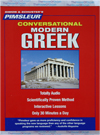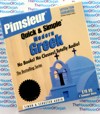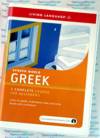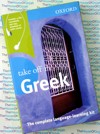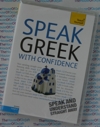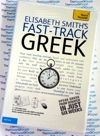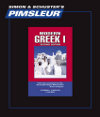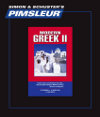Login to enhance your online experience. Login or Create an Account
Greek

|
Modern Greek refers to the fifth stage of the evolution of the Greek language, i.e. the varieties of Greek spoken in the modern era. Greek is spoken today by approximately 14-17 million people, mainly in Greece and Cyprus but also by minority and immigrant communities in many other countries. The start of the period of the Greek language known as "Modern Greek" is symbolically assigned in the fall of the Byzantine Empire (1453), although strictly speaking it has been shaped since at least the 11th century. During much of this time, the language existed in a situation of diglossia, with regional spoken dialects existing side by side with learned, archaic written forms. Most notably, during much of the 19th and 20th centuries, it was known in the competing varieties of popular Demotic and learned Katharevousa. Today, Standard Modern Greek, based on Demotic, is the official language of both Greece and Cyprus.Greek forms an independent branch of the Indo-European languages. Within Greek, all surviving forms of Modern Greek, except the Tsakonian dialect, are descendants of the common supra-regional (Koiné) as it was spoken in late antiquity. As such, they can ultimately be classified as descendants of Attic, the dialect spoken in and around Athens in the classical era. Tsakonian, an isolated dialect spoken today by a dwindling community in the Peloponese, is a descendant of the ancient Doric dialect. Some other dialects have preserved elements of various ancient non-Attic dialects, but Attic Koiné is nevertheless regarded by most scholars as the principal source of all of them.
|

 0 Items (Empty)
0 Items (Empty)